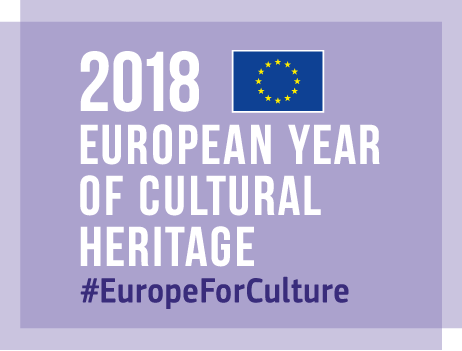The second meeting between the representatives of the Region of Central Macedonia and the local stakeholder group was successfully organised and implemented on 29th March 2017.
At the beginning of the meeting the representative of Region of Central Macedonia, Mr Michailides thanked all the attendees for their presence and support to the project implementation. He shortly presented an overview of the project objective and also, he made an introduction to the subject of the meeting 'Industrial Heritage'. He mentioned, that the Region of Central Macedonia has not promoted yet on a large scale the Industrial Heritage of the area contrary to other European cities. He claimed that the involvement of stakeholders is crucial in order to highlight the monuments that could be promoted and also to develop the Action Plan of the project.
Then the floor was taken by the Vice Governor of Tourism and Culture of Central Macedonia, Mr. Alexandros Thanos who also thanked all attendees for their support and their interest in participating in the project. He claimed that CHRISTA project can be the tool which could bring valuable practical and not only theoretical results in the sector of tourism in the whole Region. He believes that the Region of Central Macedonia has rich Industrial Heritage which has to be promoted. One example of this heritage is the port of Thessaloniki which role in the past was of major importance in the Mediterranean Sea. He stated that the representatives of stakeholder group could contribute to the gathering of all these Industrial monuments and with their cooperation, the Industrial Heritage of the Region could have positive results in the development of tourism, as many tourists could be attracted by this heritage.
Mr Nikolaou, the Head of Department of Tourism Promotion of the Region transferred to the attendees of the meeting, the experience from the RCM participation to the thematic workshop in Gothenburg and Boras on Industrial Heritage, as Sweden is one of the countries which has plenty of examples of former industrial buildings which have been transformed and today are used for other purposes, such as former shipbuilding and docks have been transformed into an area for business, research, education and exclusive residential complexes. He also presented the best practices of the other project partners regarding the Industrial Heritage of their cities and how they managed to deploy them in order to promote tourism.
Mrs. Evi Dermedesioti, the Head of Tourism Planning and Coordination stressed the importance of the recording of the existing industrial heritage, particularly of the part that can be touristic exploited, in order to be included in the Action Plan. She mentioned the Central Macedonia has a significant industrial heritage with great capabilities for promotion and touristic development. She believes that the exchange of know-how, good practices and exchange of views with the main stakeholders is the cornerstone for the exploitation of the industrial heritage in the Region of Central Macedonia.
Afterwards, the stakeholders took the floor, firstly presenting the agencies and the institutions that they represent and then discussing the ways by which they could contribute to the implementation of the project. They all expressed agreat interest in the project and a strong desire to contribute to the promotion of industrial heritage in the Region of Central Macedonia. During the meeting, several interesting ideas were presented by all parties. The discussion ended with the agreement of the stakeholders to propose more detailed and specific actions and activities which they deem that should be included in the Action Plan and the manners by which they could contribute to its development and successful implementation.




